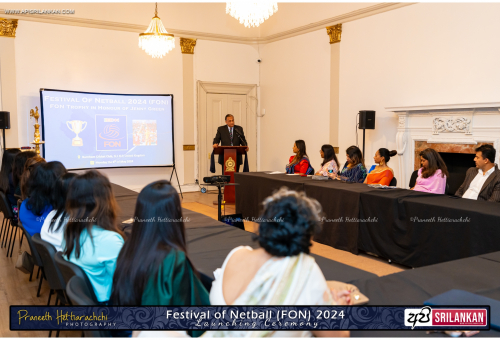By: Dulangeni Rajamanthri
What more would you need other than to relax in a luxury boutique, view serene landscapes, explore into the wilderness, devote to sacred places or engage in sports adventures? Situated south of India, Sri Lanka the emerging ‘Wonder of Asia’ is a complete destination blessed with eternal sunshine and natural wonders. Ringed with golden coasts and dotted with historical relics, its interiors rise to mystified tea plantations and scenic mountains inhabited by exhilarating wildlife within your touch. Compact in size, the island offers a collection of experiences for a holiday most suited to your needs and satisfaction.
World Travel Market (WTM), an anual leading event for the tourism industry, held from the 3rd-6th November served as a formidable platform for the whole global travel trade to network, negotiate and discover new developments within the sector. Many people attended including more than 50,000 travel industry professionals and trade partners which resulted in substantial travel market contracts and business relationships. WTM also attracted international press and visitors who were left with an abundance of diverse travel destinations. Of the many countries represented, Sri Lanka excelled in displaying potential in the fast growing tourism sector, which is a predominant industry of the nation.
The Sri Lanka Tourism Promotion Bureau alongside 58 exhibitor partners advanced in promoting the country as an ideal destination for visitors around the world with unique and enterprising hospitality products. By attending the WTM, hotel and travel agents effectively gained competitive advantage to conduct business and were provided with an opportunity to view latest consumer trends. An iconic panel depicting Sri Lankan elephants was the key attraction at the entrance to the Asian Hall and the gifting of exclusive blue sapphire gems was a definite highlight at the media briefing. The stall revealed to be an authentic showcase of Sri Lanka's culture and customs with traditional dancing memorabilia and live procession of drums. Visitors were also delighted with the chance to relax and indulge in the taste of the distinguished Ceylon tea.
The participation of Sri Lanka in exhibitions and trade fairs caters to the many inbound and outbound business partners and visitors. The importance lies in not only generating sales and developing relationships but by raising awareness of the uniqueness of Sri Lanka as a travel destination. Travel and hospitality flourish on the rich culture, natural resources and pristine coastlines that are inherent in this small but astounding country. The principle of tourism however, lies on the endorsement of these exclusive assets the country possesses. Introducing promotional and public engagements are marketing techniques that have a central role in bringing the world to Sri Lanka.
Sri Lanka has undergone socio-economic redevelopment and has experienced steady financial growth post a conflict era. Acceleration in real GDP, as a consequence to the restoration of peace, attracts vital foreign investment. Faced with political unrest, a relatively high percentage of the GDP and budget is allocated to ease off the burdens of foreign debt. Irrespective of this, actual tourist arrivals have exceeded expected targets throughout the years since 2009. Primarily, the rise in economic stability has had a positive impact in boosting tourist confidence. Tourism is a vital contributor to economic growth in the country, which further supports infrastructure development, generates employment and revitalizes national enterprises. The tourist flow has mirrored the economy and it is predicted that the country will welcome as many as 2.5 million tourists by 2016 (Sri Lankan Tourism Development Authority). As of 2013, Asia and Western Europe are the largest sources of inbound visitors to Sri Lanka.
To exploit the full potential it is essential to formulate policies and guidelines on tourism developments. Strengthening public services and elaborating on internal infrastructure are some of the future challenges that need to be tackled. Future prospects revolve in directing the country to sustaining biodiversity and envision a more eco-friendly trade. Sri Lankan tourism is newly expanding its horizons onto responsible tourism which will ultimately diversify the quality of hospitality compared to many countries globally.
*Featured
Sri Lankan Tourism: The Emerging Wonder of Asia
Dulangeni Rajamanthri |
12 Nov, 2014 01:19AM
| Leave a comment







COMMENT